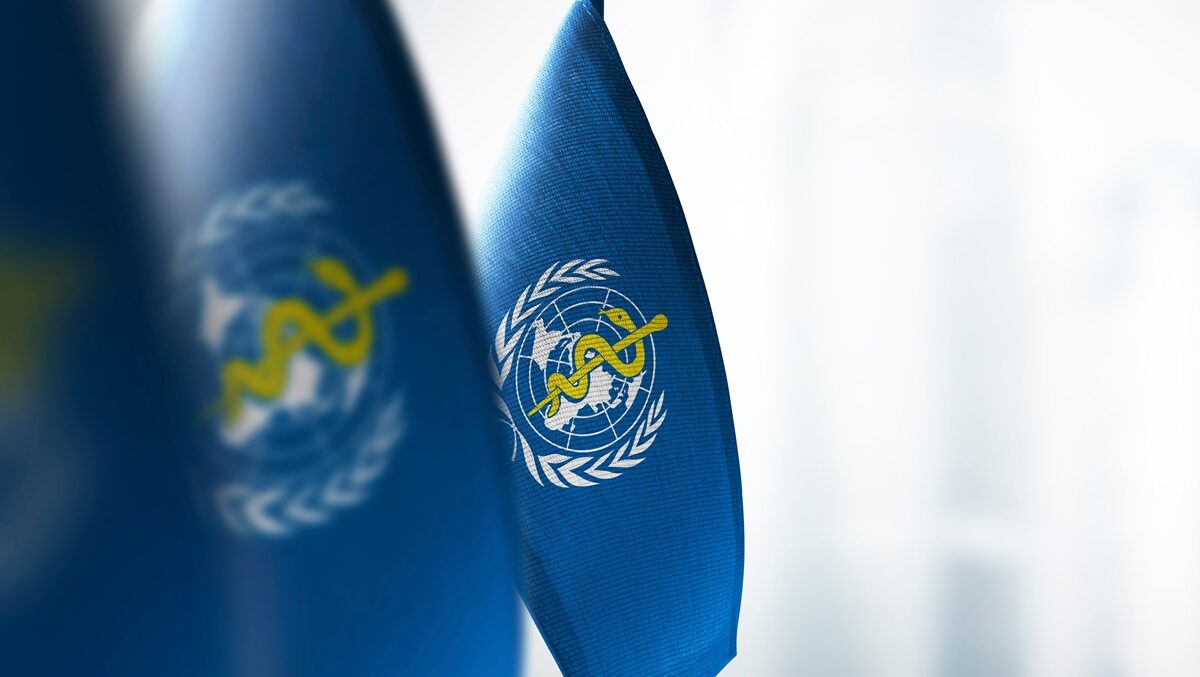
Five months from now, health ministers from the 194 sovereign states recognized by the United Nations (UN) will meet in Geneva to discuss and possibly agree to amendments to the International Health Regulations (IHRs), which are intended to “prevent, protect against, prepare, control and provide a public health response to the international spread of diseases.” Ministers will also be asked to approve the text of a new World Health Organization (WHO) convention to combat future pandemics.
While there is a need to coordinate the detection of and response to potential pandemics, it is not clear what role, if any, the WHO should have. Perhaps more importantly, it is uncertain what policies should be put in place (and by whom) to prevent, limit, and respond to any future pandemic. The U.S. government should encourage the WHO to delay both changes to the IHRs and the introduction of a new treaty until several issues are satisfactorily resolved.
Insufficient Curiosity About the Pandemic’s Source
If we knew the source of the COVID-19 pandemic, it might be easier to prevent a new one. Unfortunately, the Chinese government removed evidence that might well have explained the virus’ origins and/or exonerated Chinese actors of creating the virus in a lab or of failing to have in place adequate measures to prevent its accidental release. But the WHO has shrugged its shoulders and not pressured China for all relevant data. How times have changed. When SARS killed hundreds in 2003, China was again the source of the disease, but then WHO had a public spat with China over its attempted cover up of the disease.
Given that most new viruses appear to come from China, and genetic-level research encouraging new pathogens is rife in China, we’re likely to see history repeat itself unless better means can be found to reduce the likelihood that new pathogens are released accidentally, and to ensure that information about any new pathogens that do emerge—whether from the wild or the lab—is shared widely and quickly. If the WHO is to oversee this process, more robust and honest WHO leadership is an absolute necessity.
This is especially true if SARS-CoV-2 stemmed from government-supported gain-of-function research. Imagine that a plane crashes and the agency responsible for air safety (in the United States, this would be the Federal Aviation Administration) showed no interest in the reason for the crash. It would not happen, and it should not happen with COVID.
Insufficient Curiosity About Different Approaches to Combat COVID
The WHO has been particularly reluctant even to acknowledge the various approaches taken by jurisdictions that did not follow its advice. A good example is Sweden, which never “locked down,” allowed schools and business to stay open, and relied on the good sense of the Swedish people to socially distance and quarantine where required. Since Sweden has had among the lowest mortality rates in the world over the past four years, perhaps it has lessons for the rest of us. If so, those lessons should be taken into consideration by any organization seeking to provide advice in the event of a future pandemic.
If the WHO wants to play that role, it should be more open to evidence of effectiveness from Sweden and other countries that took heterodox approaches. Moreover, even if Sweden is an outlier for idiosyncratic reasons, it’s crucial to understand why that is the case in order to better inform responses more broadly.
The WHO Lacks Humility
Perhaps in part underpinning its lack of curiosity, the WHO appears rather too certain of the best ways to combat a future pandemic: lockdowns, mask mandates, testing mandates, and vaccine mandates.
But according to a recent Cochrane Library review—the gold standard for evaluations of health interventions—mask mandates are simply ineffective. And according to a comprehensive meta-analysis, while lockdowns may have prevented deaths during at least the initial phase of the COVID-19 pandemic, they increased deaths from other diseases and imposed enormous social and economic costs.
Meanwhile, data from several countries that followed quite different policies—which also include Taiwan, Germany and South Korea—show that other approaches were equally successful, if not more so. The paths these countries took demonstrate that pandemic policies are not “one size fits all,” that mandates don’t always work, and that the tradeoffs in shuttering schools and businesses might ultimately cause more harm than good.
When mandates are under consideration, government agencies should—at a bare minimum—assess whether their costs outweigh their benefits. The WHO should acknowledge this reality and use its position to provide a comprehensive picture of the various ways that countries successfully responded to the exigencies of the pandemic.
The WHO Engages in Censorship
The WHO acknowledges that health misinformation can cost lives. Yet during the pandemic, it inhibited the free flow of information and effectively contributed to the dissemination of misinformation.
Taiwan first alerted the WHO to the threat coming out of Wuhan, yet the WHO backed Beijing’s claims that it could contain the virus. In this case, the problem resulted from the fact that Taiwan is not a member of the UN or any of its agencies, including the WHO. Its statements are therefore not recognized by the WHO, due to the UN’s official “One China” policy. The unfortunate result is that the WHO provided misinformation. Unless the WHO becomes more inclusive, it cannot be trusted to act as the information coordinator in a pandemic.
Inhibiting the Scientific Process
The WHO says we should “follow the science.” But science is a process, not the opinion of senior figures. Science requires robust debate, which the WHO sought to shut down.
As a case in point, during the early phases of the pandemic, public-health officials assessed the infection fatality rate (IFR, a measure of how many people die when infected) by using data from hospitalizations. But these data inaccurately biased the IFR upward, since most of those infected were either asymptomatic or not severe enough to need a hospital. The falsely high IFR led to even greater calls for lockdowns.
Moreover, of those hospitalized, physicians tried many drugs to combat the infection and its symptoms, including steroids, hydroxychloroquine, and ivermectin. While some of these efforts failed or remain unproven, others worked in various contexts. Encouraging trial and error and communication about successes and failures is important.
WHO decisions on what new approaches to support appear arbitrary, without a clear understanding of what the agency promotes and why it would be useful. That applies, as well, to its assessments of the efficacy and risks of vaccines. COVID vaccines have saved countless lives, and many concerns about these vaccines have been overblown or incorrect. But the available evidence shows vaccine rates declining in the United States because the WHO (among other actors) served to shut down debate, which had the downstream effect of creating suspicion of the vaccines in the popular imagination.
A History of Exclusionary, Opaque Treaties
The one other WHO treaty—the Framework Convention on Tobacco Control—has the noble aim of reducing the harmful use of tobacco. It is, however, highly exclusionary and has long had opaque processes.
For example, because the international police agency INTERPOL has received funds from the tobacco company Philip Morris (to work on a project on illicit cigarettes), the WHO banned it from observing—let alone participating in—treaty negotiations and follow-up meetings until INTERPOL had ended its association with Philip Morris. INTERPOL, it should be noted, probably knows more about illicit production and smuggling than any other single group, and surely should be consulted on policies to combat the tens of billions of illicit cigarettes sold every year.
It seems almost inevitable that, unless the concerns I raise here are addressed effectively, a new WHO pandemic treaty would suffer similar defects.
Conclusion
There are no doubt many other lessons we could draw from a better understanding of the history of COVID’s emergence and our response to it. While there are ongoing efforts to do so, governments do not appear to be heeding them.
For example, the UK government inquiry into lockdowns likewise avoids discussing COVID’s origins and other sensitive topics. As some have alleged, the inquiry’s goal may be more about scoring political points—especially attaching and avoiding blame for policy failures—rather than finding the truth.
What is required is a thorough assessment of all aspects of COVID, from understanding its origin to assessing ongoing vaccine policy, so that the best advice about practices and products can be disseminated rapidly. An understanding of which political level (local, state, federal, international) is best to address specific aspects of the problem is also important.
Perhaps the WHO should have a role—even the central role—in some of these efforts. But it would be premature to give it more power to direct responses without some accounting for past failures. There are glaring examples of where the WHO got things wrong (e.g., its assertion that China would be transparent with its data and that China would adequately control the virus; that lockdowns and vaccine and mask mandates are essential; that vaccines prevent transmission; that vaccines are required even if you just had COVID), or where it erroneously failed to show interest (in COVID’s origins, in the successes of places like Sweden and Taiwan).
Some of those failures appear to be systemic, as they are a result of the WHO’s structure, funding, lack of transparency, and authoritarian leadership. The U.S. government must prevent expansion of the WHO’s powers until these issues are thoroughly investigated and solutions are agreed upon and implemented.
The U.S. government made some of the same mistakes as the WHO. Congressional oversight of U.S. agencies, policies, and officials is also often slow and incomplete. But such oversight can and does happen, and changes are undertaken. This oversight is required now.
By contrast, oversight of UN bodies (including the WHO) is very weak, and the only real constraint is the threat to withhold funds. But with an increasing share of WHO funds coming from private actors (such as the Gates Foundation) and for specific projects, governmental threats to withhold general funds are becoming weaker. As such, the U.S. government should only agree to grant the WHO new powers when it is sure both that it is the correct body to wield such powers and that it can execute said powers fairly and effectively. At the moment, neither of those conditions has been met.
It’s tempting to just move on from COVID, and even to assume that a WHO treaty could prevent a future pandemic. But to do so would be to invite a new pandemic that, when it arrives, could lead to even more draconian policies than during COVID. The result could well be lasting harms to our economy, our health, and our children’s education.




